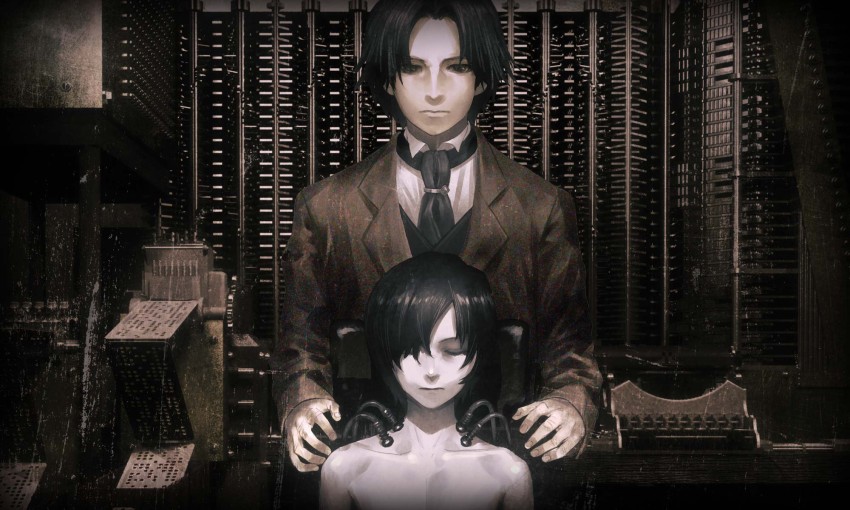Empire of Corpses
August 11, 2016 · 0 comments
By Hugh David.
 Few mediums have been so conducive to a genre as anime has been to steampunk. Where live-action ventures are stalled by budget, requiring both the costs of a period drama (costumes, locations, props) and a sci-fi actioner (special effects blended with action scenes), anime can create convincing worlds based on modified technology from the past. The latest example of these is The Empire of Corpses, adapting the late author Project Itoh’s final work (completed by his friend Toh Enjoe) into a spectacular feature film entertainment.
Few mediums have been so conducive to a genre as anime has been to steampunk. Where live-action ventures are stalled by budget, requiring both the costs of a period drama (costumes, locations, props) and a sci-fi actioner (special effects blended with action scenes), anime can create convincing worlds based on modified technology from the past. The latest example of these is The Empire of Corpses, adapting the late author Project Itoh’s final work (completed by his friend Toh Enjoe) into a spectacular feature film entertainment.
In a parallel version of the late Victorian period, Western imperialism has been built on reanimated corpses instead of slavery. While each country possesses its own variations on the technology, all are derived from the pioneering work of Dr Frankenstein, but the whereabouts of the good doctor, his Creation and the deepest secrets of his methods remain shrouded in mystery. Young John Watson has given himself over fully to the study and development of this technology, seemingly wracked with guilt over the death of his close friend Friday; he remains convinced that Frankenstein’s greatest achievement – retrieving the soul to inhabit a corpse – is within reach.
Enter M, a mysterious government operative not a million miles away visually from Sean Connery’s Allan Quatermain in the League of Extraordinary Gentlemen movie (as opposed to the traditional visualisations of Mycroft Holmes, who bears the name and position in the original LXG comics). He offers Watson the means to track down the fabled project notes of Dr Frankenstein, teaming him up with roguish secret agent Frederick Barnaby. They head for India, hot on his trail, only to find someone there is ready for them, armed with “suicide bomber” corpses and more besides.
Project Itoh was not the first author to move from cyberpunk and hard SF into steampunk, and like others he continues to explore the same themes in the new setting. The film noticeably maintains these, including an interest in the nature of and effects from globalisation, the spiritual at the heart of the grubbier aspects of technology once implemented, and Western intelligence involvement in matters outside its ostensible spheres of influence. The very idea of ordinary humans doing menial or boring jobs now being visualised as tech-run zombies is terrifying on more than one level; one cannot assume that all those live humans freed up would be living better quality lives. One gets the sense that maybe these people have been killed just to make them into controllable creatures: undead slave labour without that pesky human free will to cause problems for their masters.
Once more, Asians serve as cannon fodder while British and American heroes race around trying to discover and stop whatever machinations one of their own has put into play. The deaths of the zombie-like hordes trying to kill Watson and Barnaby in India are given greater weight as the film delves into the mysteries of whether the corpses can still access their souls. The desire of some characters to remove their own free will by becoming corpses adds another tragic dimension to the technology and its use. Interestingly enough, the revelation of a character as a cyborg later on suggests a Blade Runner-like angle as well, a glimpse of how automation could offer an alternative to this necrotech but without resolving the philosophical questions.
As with most steampunk fictions, a lot of pleasure can be derived from the recognition of our world glimpsed through a funhouse mirror. The Tower of London in this world looks like the Vauxhall Cross headquarters of MI6. An echo of The Phantom of the Opera resonates through the finale. The American characters and their derring-do are reminiscent of Mark Frost’s List of Seven/Mark of Six novels, or perhaps not far removed from other more recent steampunk books and comics. And after all the emotional and physical trauma suffered by our heroes, a moment of grace is allowed them in a post-credits coda that ties up this mythology with more well-known ones hinted at. All in all, an ambitious and worthy entry to the field.
Empire of Corpses is released in the UK by Anime Limited.
anime, Empire of Corpses, Genocidal Organ, Harmony, Japan, Project Ito, Sherlock Holmes, Studio WIT
Leave a Reply